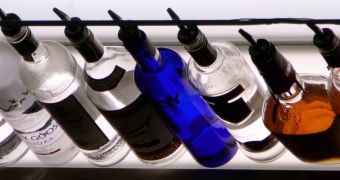Binge drinking is considered to be a global public health issue. Authorities around the world are trying to figure out how to stop it, and scientists are conducting numerous investigations into its dangers. But, strangely enough, there have been no studies to quantify the influences of this behavior on teenagers. Thus far, researches have only covered adults, but investigators at the Northumbria University managed to solve this issue. They carried out the first survey of how binge drinking influences teens, and their conclusions are nothing to be happy about, AlphaGalileo reports.
Members of the science group explain that this behavior has a direct influence on the teens' prospective memory, which is a crucial aspect of day-to-day memory function. Experts define it as being able to remember to carry out an activity sometime in the future, which means that it's a cognitive ability. In an experiment they set up in North East England, the investigators looked at how 50 test participants were able to remember a few simple things. The researchers showed them a video of a shopping district, and then asked the students to remember to perform a series of tasks as soon as they saw the places in the video.
Of the 50 participants, 21 had been identified as binge drinkers beforehand. In order to fall into this category, the students needed to consume at least six standard glasses of wine two times per week (women) or at least six pints of beer over the same time frame, for men. The investigators were surprised to learn that binge drinkers perform significantly poorer at their test than the other 29 test subjects, which hinted at a clear correlation between prospective memory and binge drinking.
“The mechanisms that may underlie such everyday cognitive impairments associated with binge drinking are not yet fully understood. It is possible that excessive drinking may interfere with the neuro-cognitive development of the teenage brain. It is important to realize that there no ‘safe’ levels of drinking set for teenagers and that the amount of binging revealed in the present study represents a high volume of alcohol intake across the two to three binging sessions which were the norm in the group,” says Northumbria expert Dr Tom Heffernan, the leader of the investigation.
“The high levels of drinking amongst teenagers is particularly worrying given the mounting evidence that the teenage brain is still maturing and undergoing significant development in terms of its structure and function. Given that teenagers are inexperienced drinkers who have both a low tolerance for alcohol and immature neurophysiological systems, they should therefore be drinking much less than the ‘safe’ levels recommended for adults,” he concludes.

 14 DAY TRIAL //
14 DAY TRIAL //